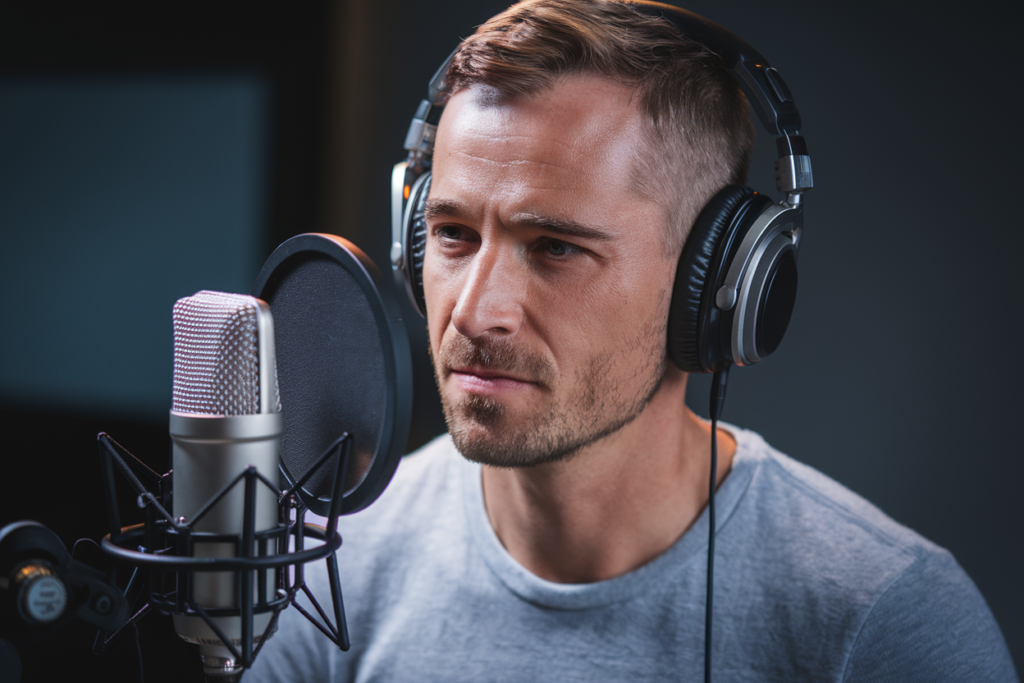When it comes to voiceovers, localization is key, especially in a diverse country like France. You might think that simply translating scripts is enough, but the reality is far more complex. Cultural nuances regional dialects and audience expectations all play crucial roles in creating an authentic French voiceover experience.
Navigating these localization challenges requires a deep understanding of both language and culture. Whether you’re working on marketing campaigns films or educational content you need to ensure your message resonates with the target audience. By recognizing these hurdles you’ll be better equipped to deliver high-quality localized voiceovers that truly connect with listeners across France.
Key Takeaways
- Localization Goes Beyond Translation: Effective voiceover localization in France requires adapting content to local cultures and dialects, not just translating scripts.
- Cultural Nuances Matter: Understanding cultural references, humor, and regional expressions is essential for creating relatable and authentic voiceovers that resonate with the audience.
- Regional Dialects Impact Perception: Different accents and dialects across regions like Paris, Marseille, and Lyon necessitate skilled voice actors who can match their delivery to these linguistic features.
- Challenges in Talent Sourcing: Finding qualified voice talent familiar with various regional nuances can be difficult but is crucial for maintaining authenticity in localized projects.
- Importance of Script Adaptation: Scripts must be carefully adapted to reflect local customs and preferences while ensuring proper timing adjustments are made for different regions.
- Utilize Technology & Quality Control: Leveraging appropriate technology along with rigorous quality assurance processes enhances the overall effectiveness of localized voiceover productions.
Overview of Localization Challenges
Localization in voiceovers involves more than script translation. It requires adapting content to resonate with local audiences, which can be challenging in a culturally rich country like France.
Understanding cultural nuances is crucial. Voice artists must grasp regional expressions and humor to connect authentically with listeners. For instance, what works in Paris might not appeal to audiences in Marseille or Lyon due to differing dialects and social contexts.
Navigating language variations presents another challenge. French contains multiple dialects that affect pronunciation and word choice. Ensuring the right voice talent reflects these differences enhances the authenticity of the voiceover.
Audience expectations also play a significant role. Clients often seek specific tones or styles from voice actors that align with their brand identity or message. Failing to meet these expectations can lead to disconnection from target demographics.
Lastly, technical considerations arise during localization projects. Adapting timing and pacing for localized scripts may differ from the original language version, requiring skilled voice over talent who understands these nuances.
Addressing these challenges effectively ensures that your localized content resonates deeply within the diverse French market, creating impactful connections with listeners across various regions.
Importance of Voiceovers in Localization
Voiceovers play a crucial role in localization, especially within culturally rich environments like France. They bridge the gap between content and audience, enhancing understanding and engagement.
Cultural Nuances
Cultural nuances significantly affect how voiceovers are perceived. A voice artist must not only translate scripts but also embody local traditions, values, and humor. For instance, using idiomatic expressions familiar to the target audience can create relatability and authenticity. Understanding cultural references ensures that your message resonates deeply with listeners, transforming a standard voiceover into an engaging experience that aligns with local sentiments.
Regional Dialects
Regional dialects add another layer of complexity to localization efforts. France boasts a variety of accents and dialects from cities like Paris, Marseille, and Lyon. Each area has its unique linguistic features that influence listener perception. A skilled voice actor should match their delivery to these regional characteristics to foster connection with local audiences. This adaptation enhances comprehension while making the content feel more personalized and relevant to specific communities across France.
Common Challenges Faced
Localization of voiceovers in France presents several challenges that require careful consideration. Understanding these hurdles can significantly enhance the effectiveness of your projects.
Talent Availability
Finding qualified voice talent proficient in various regional dialects poses a challenge. Not every voice artist possesses the ability to adapt their delivery based on local nuances, which is crucial for authenticity. Regional preferences may dictate specific characteristics that resonate better with audiences, so sourcing diverse voice actors who meet these criteria can be difficult.
Script Adaptation
Script adaptation demands more than literal translation; it requires cultural insight and creative reworking. Voice over artists must ensure that idiomatic expressions, humor, and references align with local customs and expectations. Timing adjustments for localized scripts are vital as pacing can differ from one region to another. This integration guarantees that the final product maintains engagement while sounding natural to listeners across France’s varied landscapes.
Technological Considerations
Technological advancements play a significant role in the localization of voiceovers, influencing both the production process and the final output quality. Understanding these factors is crucial for achieving effective localization.
Software Limitations
Software limitations can impact the efficiency and effectiveness of voiceover projects. While many audio editing tools offer robust features, not all support advanced functionalities necessary for localized content adaptation. Some software may struggle with specific regional dialects or accents, limiting the ability to capture authentic delivery by voice actors. Additionally, certain programs may not allow for flexible timing adjustments or nuanced edits that cater to local audience preferences. Selecting software tailored for diverse language needs enhances flexibility in script adaptation and ensures high-quality results.
Quality Assurance
Quality assurance remains essential in delivering compelling voiceovers that resonate with your target audience. Implementing rigorous quality checks throughout the production process guarantees that every detail aligns with cultural expectations and linguistic accuracy. Engaging experienced voice artists familiar with local dialects increases authenticity; they can provide insights into tone, pacing, and expression suited to each region’s unique characteristics. Regular feedback loops between producers and talent help refine performances, ensuring they meet client specifications while maintaining engagement levels across different audiences in France.
Best Practices for Effective Localization
Effective localization of voiceovers requires careful planning and execution. Implementing these best practices enhances the quality and resonance of your content.
- Engage Native Voice Artists
Engage native voice artists who understand local dialects, cultural nuances, and audience preferences. Their familiarity with regional expressions ensures authenticity in delivery. - Conduct Thorough Research
Conduct thorough research on the target audience’s cultural context, humor, and values. This understanding informs script adaptation and helps avoid misinterpretations or cultural faux pas. - Adapt Scripts for Local Relevance
Adapt scripts to incorporate idiomatic expressions that resonate with local listeners. Replace generic terms with region-specific references to enhance relatability. - Ensure Proper Timing Adjustments
Ensure proper timing adjustments in voiceover recordings as pacing varies across regions. Synchronizing delivery with localized content maintains engagement without sacrificing clarity. - Utilize Quality Control Measures
Utilize quality control measures throughout the production process to check for linguistic accuracy and cultural appropriateness in the final product. - Foster Collaboration Between Teams
Foster collaboration between creative teams, producers, and voice actors during the adaptation process. Frequent communication allows for quick adjustments based on feedback from all parties involved. - Incorporate Feedback Loops
Incorporate feedback loops throughout production by soliciting input from focus groups familiar with regional audiences. Their insights can guide final adaptations before release. - Leverage Technology Efficiently
Leverage technology effectively to streamline production processes while maintaining high audio quality standards essential for engaging localized content. - Focus on Emotional Connection
Focus on creating an emotional connection through tone and style tailored to specific audiences in France’s diverse regions, ensuring your message resonates deeply. - Train Voice Actors Regularly
Train voice actors regularly on current trends, language changes, and audience preferences within their respective locales to keep their performances relevant and impactful.
By applying these best practices consistently, you ensure that your localized voiceovers resonate authentically with diverse audiences across France’s varied landscapes.
Conclusion
Navigating localization challenges in French voiceovers demands a keen understanding of cultural nuances and regional dialects. By focusing on authenticity and audience connection, you can elevate your content to resonate deeply with listeners across France.
Embracing best practices like engaging local voice artists and adapting scripts thoughtfully will enhance relatability while maintaining quality. As you refine your approach, remember the importance of collaboration and feedback loops between creative teams and talent.
Investing time in these elements not only improves the effectiveness of your voiceovers but also fosters genuine engagement with diverse audiences throughout the country. With careful attention to detail, your localized voiceover projects can truly shine.
Frequently Asked Questions
What is localization in voiceovers?
Localization in voiceovers involves adapting audio content to fit the cultural and linguistic context of a specific audience. It goes beyond simple translation, requiring an understanding of regional dialects, cultural nuances, and local preferences to create an authentic listening experience.
Why is understanding cultural nuances important in voiceover work?
Understanding cultural nuances ensures that voiceovers resonate with the target audience. It helps artists convey emotions, humor, and references that are culturally relevant, making the content relatable and engaging for listeners.
What challenges do voice artists face when localizing content for France?
Voice artists often encounter challenges like regional dialect variations and the need to adapt scripts for local expressions and humor. Additionally, finding qualified talent who can deliver authentic performances across different French regions can be difficult.
How does technology impact the localization of voiceovers?
Technology influences both production efficiency and output quality in voiceover localization. Advanced software tools can aid in editing but may have limitations; ensuring high-quality results requires skilled use of these technologies throughout the production process.
What best practices should be followed for effective localization of voiceovers?
Best practices include hiring native speakers familiar with local dialects, conducting thorough audience research, adapting scripts with idiomatic expressions, adjusting timing during recordings, maintaining quality control, and fostering collaboration between creative teams and voice actors.






